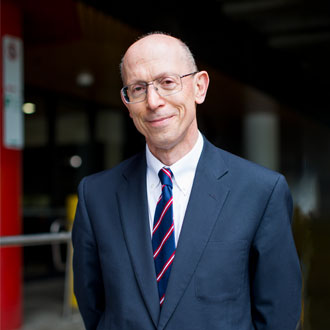Professor Thomas (Tom) H Marwick
MBBS (Hons), University of Melbourne | PhD, University of Louvain | MPH, Harvard

Head: Imaging Research
La Trobe University supervisor
Monash University supervisor
Swinburne University of Technology supervisor
Torrens University supervisor
University of Melbourne supervisor
University of Tasmania supervisor
Laboratory Head
tom.marwick@baker.edu.auTom completed training in medicine and cardiology in Australia, before undertaking an Imaging Fellowship at Cleveland Clinic, a PhD at the University of Louvain, Belgium and a Masters in Public Health at Harvard.
Tom has divided his career mostly between the USA (former Head of Cardiovascular Imaging at Cleveland Clinic) and Australia (formerly Professor of Medicine and Head of Cardiovascular Imaging Research Centre, University of Queensland and Director of the Menzies Institute for Medical Research in Hobart. After 8 years, Tom stepped down from leading the Baker Institute in 2024, to focus on his research and public hospital practice.
He was one of the initiators of stress echocardiography, and has made contributions to the prognostic evidence underlying cardiovascular imaging. Over the last 20 years, he has been one of the main proponents of direct measurement of myocardial deformation (strain), and his current interests in that topic relate to shear-wave imaging using high-frequency ultrasound. This fits his ongoing research interests in the detection of early cardiovascular disease and cost-effective application of cardiac imaging techniques for treatment selection and monitoring. Access to cardiac imaging is a cornerstone of current cardiology, and Tom is also working on AI methods to acquire and interpret images remotely, including the development of robotics
He has published over 1000 papers, reviews, chapters and editorials, and is an Associate Editor at JACC and Deputy Editor at JACC-Cardiovascular Imaging. Dr Marwick has been the recipient of more than fifty significant research grants and several awards, including the Simon Dack Award from the American College of Cardiology, 2009 and the RT Hall Prize (2006) and Kempson Maddox Lecture (2011) of the Cardiac Society of Australia and New Zealand. In 2024, the American College of Cardiology awarded Tom the Distinguished Mentor Award in recognition of his contribution has been in clinical research training. Tom has supervised almost 50 RHD students, and has over 40 completions (35 of these PhD).

